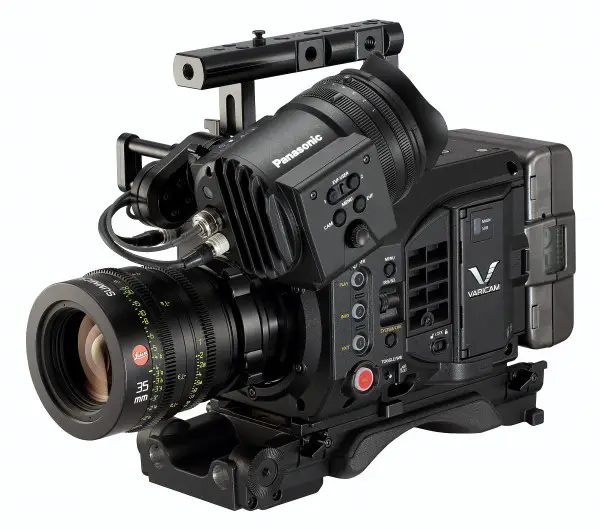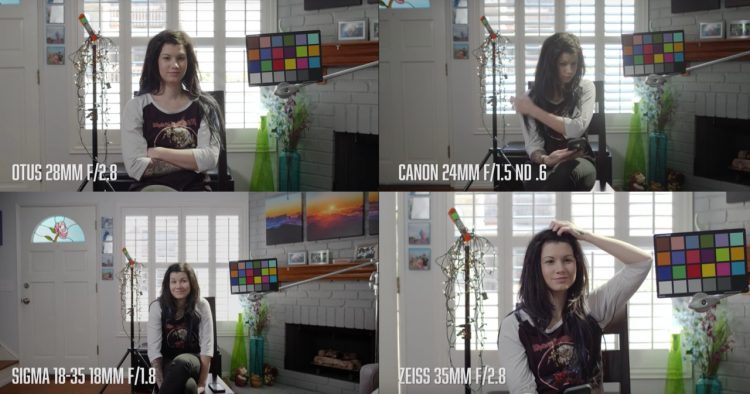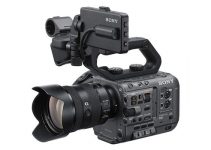You guys may remember a while back we shared a massive 50+ minute Panasonic Varicam LT review with you that was done by LA-based filmmaker and DP, Ben Meredith. The Varicam LT, in itself is a beast of a camera, and one that certainly deserves a long form review, but this time around Ben is back with a 30+ “lens test” he shot with the Varicam LT and a bunch of highly regarded lenses for cinematic video productions.
For those of you lens nerds, who have just woken up, grab a cup of coffee and enjoy this “personal, rather than Technical lens test”.
Nevertheless, I personally think that there are quite a few useful bits in there, especially if you are wondering how does (for example) the very popular Sigma 18-35mm f1.8 wide-angle zoom fare on the Varicam LT compared to other popular lenses – which included the Leica R (cine moded by Duclos), some of the Canon CN-E primes, the budget friendly Rokinon XEENs and some Zeiss Otus thrown in for good measure.
Lenses Used:
- Canon Cine Primes,
- Vintage Cooke Speed Panchros,
- Duclos Leica R Cine-Mods,
- Duclos Zeiss ZF.2 Cine-Mods,
- Sigma 18-35 Stills Version Zoom,
- XEEN Cine Primes
- Zeiss Otus Primes.
Some fellow awesome Los Angeles cinematographers and myself got together and pooled our resources for a big day of shooting with a variety of lenses and cameras (shout out to the talented Evan Butka for coordinating!). This was a very relaxed environment with numerous people moving around, changing lenses, etc. – AKA It’s not perfect!
Points of interest for aberration were the corners of the colour chart, the models hair (note – parts of her hair were dyed purple) and the holiday lights. The video will zoom in 300% occasionally to check those areas up until the longer focal lengths.
The Grade: V-Log to Rec.709 LUT, highlights brought down a little (the VariCam can see even deeper, but the Rec.709 blew some info out). I am not a professional colourist – just tried to keep it simple to show the differences in the lenses.

Panasonic Varicam LT Features and Highlights
- 4K Super35 CMOS Sensor
- Native Canon EF mount (PL mount extra option – easily user swappable)
- 2K/Full HD 240fps Slow-Motion (uses sensor crop)
- 4K/60p and Full HD ProRes 4444 & 422HQ
- 4K/60p Raw to Convergent Design Odyssey7Q+
- Built-in ND filters: 0.6/1.2/1.8
- User Removable IR Cut filter
- Single ExpressP2 card Slot for Main 4K/2K/HD recording
- SDXC Card slot for Proxy Long GOP recording
- Dual Native ISO – 800/5000
- Optional OLED viewfinder
- 3 x SDI Out (dedicated one for Viewfinder)
- Support for 3rd Party Viewfinders like Zacuto Gratical
- 2 x XLR inputs – 4 x Channel Audio 24bit/48kHz LPCM
- V-Gamut – exceeds BT.2020 HDR colour space
- 14+ Stops Dynamic Range with V-Log
- V-Look and BC-Look Presets
- Weight: 2.7 kg / under 6 lbs
It is worth to note that Ben and his compadres had access to an ARRI Alexa and a RED Epic-W 8K S35 Helium for this test and you can hear Ben’s thoughts after the 14:25 mark.

I am quite fond of the XEEN lenses, despite obviously their “imperfections” compared to the Zeiss Otus lenses for example, which have a lot more clinical and neutral, clean look, free of CA and colour fringing.
However, I think it’s best to leave it up to you to see how each of these lenses did and hopefully you pick-up some useful bits for your next shoot. Thanks to Ben Meredith for getting in touch with us again and sharing his test.
Disclaimer: As an Amazon Associate partner and participant in B&H and Adorama Affiliate programmes, we earn a small comission from each purchase made through the affiliate links listed above at no additional cost to you.




